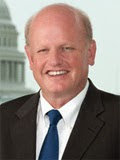The RNLA is pleased to announce that Michael Carvin will be speaking at the 2015 National Policy Conference. Carvin will be speaking on the recent case King v. Burwell, a case in which he recently argued before the Supreme Court on the Affordable Care Act. King v. Burwell addressed whether the IRS may permissibly promulgate regulations to extend tax-credit subsidies to coverage purchased through exchanges established by the federal government under Section 1321 of the Patient Protection and Affordable Care Act.
In what’s arguably the most important case of the court’s term, Carvin will argued for plaintiffs seeking to upend a fundamental aspect of Obamacare, and Solicitor General Donald Verrilli Jr. again defended the government. Both are hailed as brilliant litigators steeped in case law, and their first round in 2012 concluded with each man able to claim a victory of sorts.
This rematch is unlikely to end in the same way. “The operation was a success, but the patient died,” Carvin told others after the justices ruled three years ago. They’d bought his argument that Congress didn’t have a constitutional right to mandate that Americans buy health insurance. But their 5-4 decision upheld the law on the grounds that Congress could tax people who didn’t get coverage.
Carvin focuses on constitutional, appellate, civil rights, and civil litigation against the federal government. He has argued numerous cases in the United States Supreme Court and in virtually every federal appeals court. These cases include the recent constitutional challenge to the Affordable Care Act and the decisions invalidating Sarbanes-Oxley's accounting board, preventing the Justice Department from obtaining monetary relief against the tobacco industry under RICO, overturning the federal government's plan to statistically adjust the census, limiting the Justice Department's ability to create "majority-minority" districts, and upholding Proposition 209's ban on racial preferences in California. Carvin was one of the lead lawyers, and argued before the Florida Supreme Court, on behalf of George W. Bush in the 2000 election Florida recount controversy. He also has represented state governments, financial institutions, telecommunications, and energy companies in "takings," First Amendment, civil rights, and statutory challenges to federal government actions.
